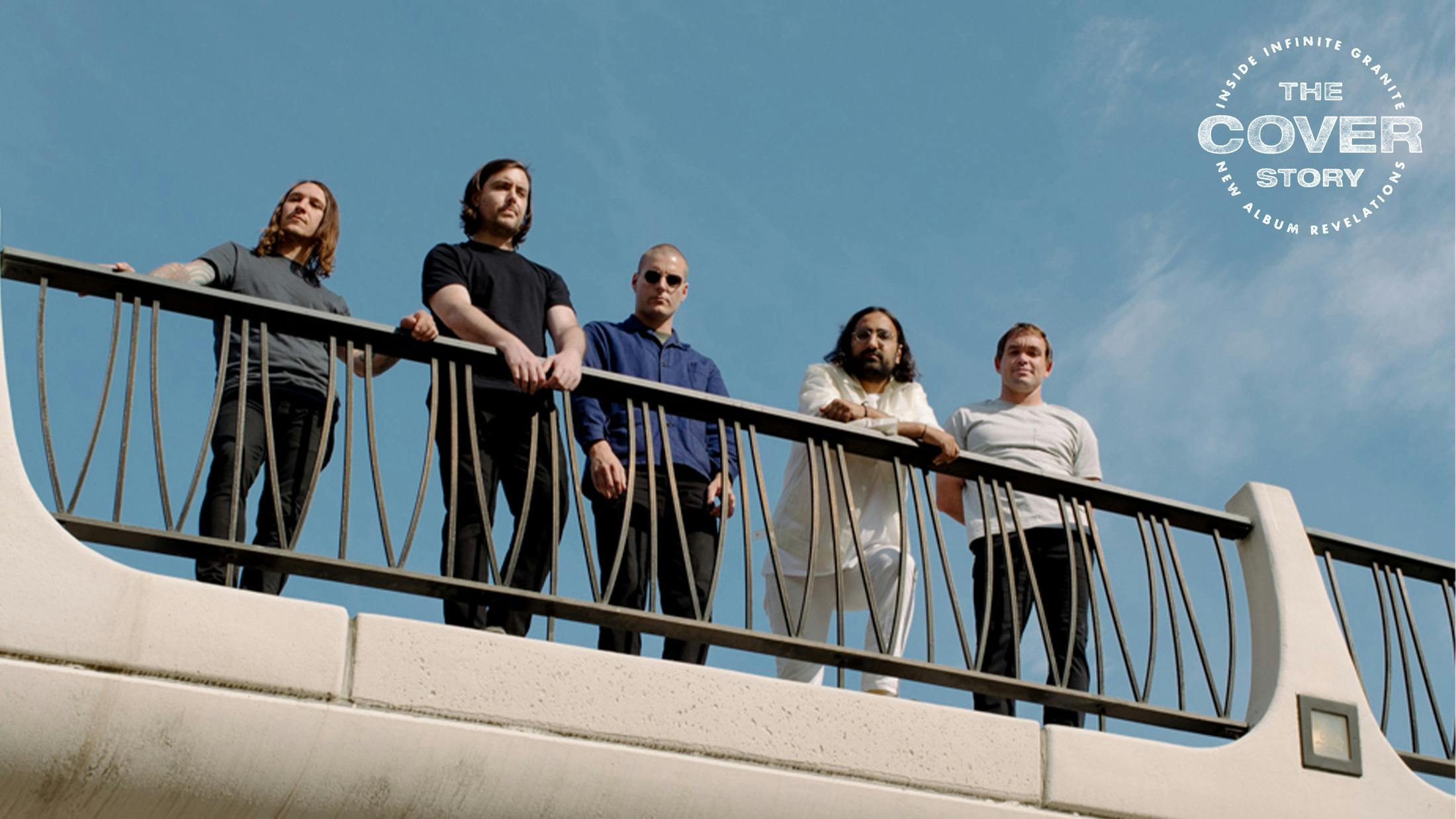“The second you start to think about pleasing anyone else is the second you shoot yourself in the foot,” reasons Kerry. “But when you have those six months after you’ve turned the record in to sit with your thoughts on it, these questions will inevitably arise. With four records, plus a demo, plus a split, plus two singles, it feels like we’re already far enough in the door. I go on tour and talk to people all around the world who like us. I see their T-shirts and the tastes that they have. I logically know that those kids who like this band are going to make the leap.”
The guitarist furrows his brow for a second, then adds, bluntly: “I think [this change] had become almost a necessity. If we had put out another record full of blastbeats, major-key chord progressions and delayed guitar, people would’ve thought we’d become one of those legacy bands who’re like, ‘If it ain’t broke, don’t fix it!’”
Choosing relevance and self-satisfaction over safety at the current crossroads will prove definitive, one way or another. Where some poisonous detractors and well-meaning-but-misinformed friends and family have suggested that Infinite Granite’s more controlled textures will be the point where “‘radio’s gonna come knockin’, the money’s gonna start rollin’ in…’”, as George jokes, this band are smart enough to know that twilight shoegaze has never torn up the charts, and clinging to spikier metal sounds would’ve been a far safer bet. As we take our leave, they reiterate that staying true to themselves is a risk always worth taking.
“If we wanted to stay as an ‘extreme metal’ band, the hard part is effectively over,” Kerry nods. “It’s just a matter of keeping going and going – putting out ‘Deafheaveny’ records for the next 10 years – and the guarantees keep going up and up, the fest offers keep getting bigger. Then the next thing you know is you’ve got a nice little thing going.”
“We’re a bit too overly-interested in the creative aspect,” George concludes. “We need to fulfil ourselves over everything else, otherwise this project simply isn’t going to last. So we’re throwing ourselves back into the wilderness.”
Deafheaven's new album Infinite Granite is released August 20 via Sargent House.
Click the button below to download your print-at-home Kerrang! cover, smartphone wallpapers and more.
